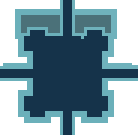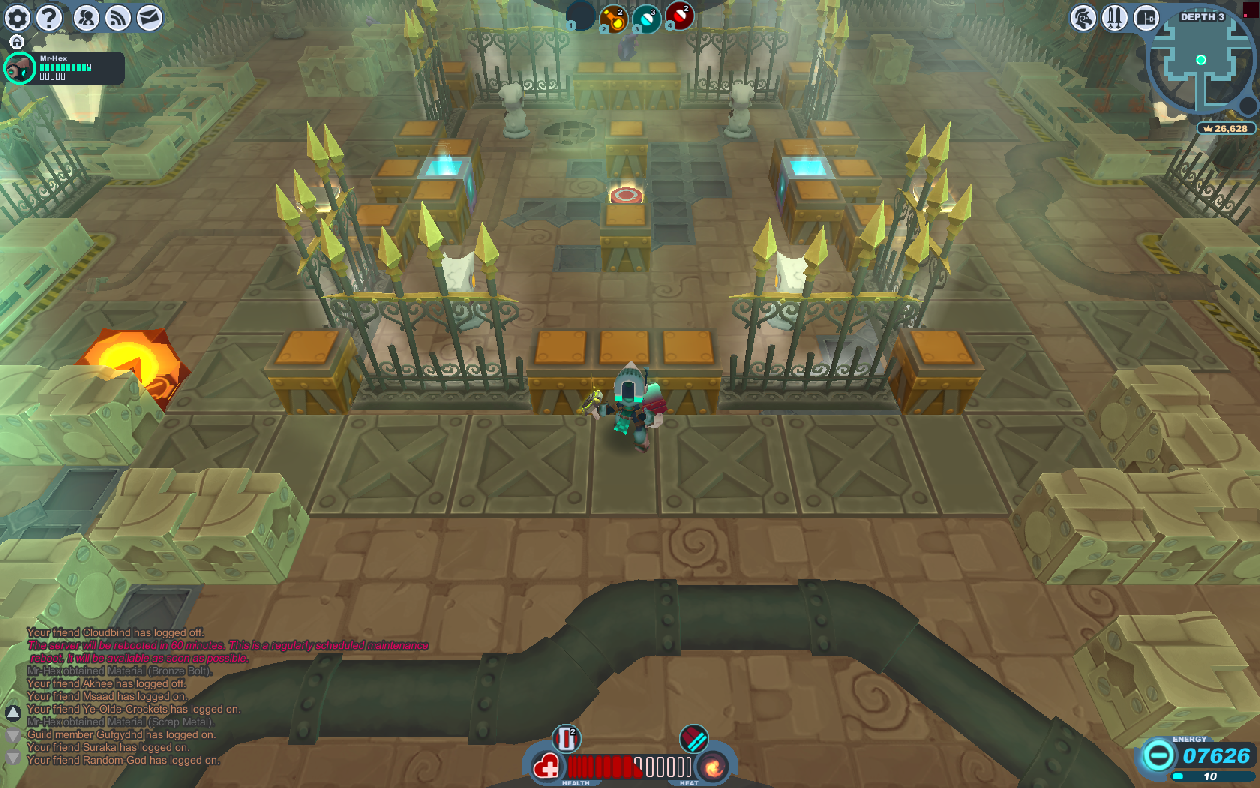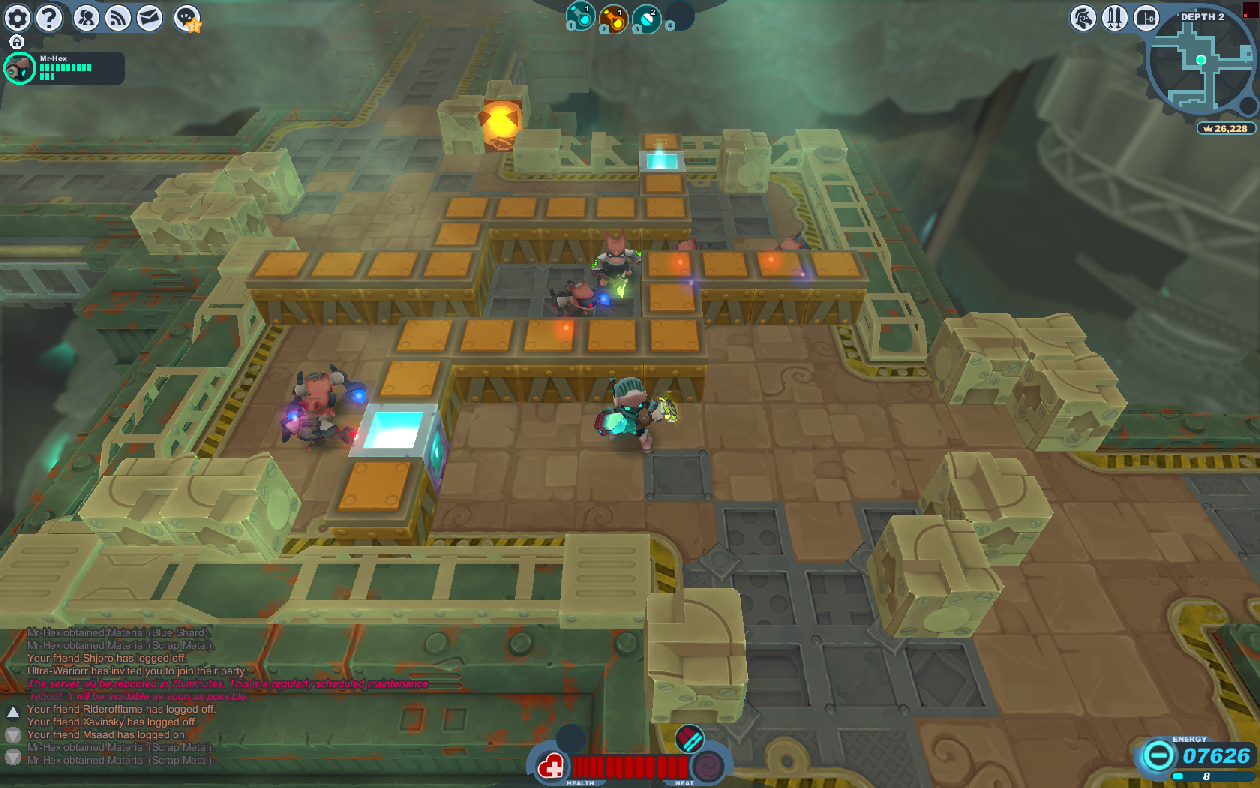Template:MapList
From SpiralKnights
| [[File:Map-{{{location}}}-{{{type}}}-1A.png|90x90px]] | [[File:Area-{{{location}}}-{{{type}}}-1A.png|250x250px|No official description for this area.]] | [[{{{location}}}]] | {{{type}}} | Notes:
{{{notes}}} |
[edit] []  Template documentation
Template documentation
Contents
Usage
To organize the large variety of areas and their associated maps in a list format.
It may also aid in keeping the naming convention of Map and Area images consistent, even if said images are not in a list.
Code
{{MapList/Start}}
{{MapList
|location =
|type =
|# =
|variant =
|location notes =
|description =
|notes =
}}
{{Table/End}}
Naming convention is thus:
File:Map-{{{location}}}-{{{type}}}-{{{#|1}}}{{{variant|A}}}.png
File:Area-{{{location}}}-{{{type}}}-{{{#|1}}}{{{variant|A}}}.png
Parameters
Required
- location
- If not a mission: use the larger, most uniform area name (Clockwork Tunnels, Devilish Drudgery, Deconstruction Zone, Treasure Vault, Compound instead of "ruined compound," etc.). You can use the specific floor too ("ruined compound" etc.), that's fine - but most of these are representative images. Since the filename is mostly hidden to casual users, this doesn't truly matter. I suppose in the long long run it would be best to use the true name instead of the "most uniform name," in case the clockworks is ever filled with lots of weird exceptions, instead of only a few.
- If a mission: enter the FLOOR name here, unless it is a lobby or a set area (no random module generation, always the same map, etc). If the area is one of these, use the MISSION name, and enter the floor name (or just "Mission Lobby" if the lobby isn't unique) for the type slot.
- type
- If not a mission, and not an entire area: pick one of the below. (Please add to this list as the game updates).
- Larger areas:
- Danger Room
- Scenario Room
- Mysterious Room (Event only: March of the Tortodrones)
- Larger areas:
- Modules:
- Start (area where the level starts)
- I (a "straight" path - you still end up going Weast<>East, or North<>South, no matter how wavy it seems to be.)
- L (an elbow, a.k.a "turn")
- T (a "T" connector that joins three paths.)
- + (a cross connector that joins 4 paths. includes modules shaped like "x" of course)
- D (a "dead end" or "cul-de-sac." Usually has loot, minerals, but not always.)
- End (area where the level ends. Sometimes has loot.)
- Modules:
- If not a mission, AND an entire area:
- Use the area's sub name. Example: "Fortune Smiles on the Greedy" for Treasure Vaults.
- If a mission: use above types (unless it is a lobby or set area! see above).
- notes
- Summarize the area. Avoid opinionated strategizing (if you do, put in {{Opinion/Small}} before the text and keep it short). See examples below for details.
Optional
- description
- defaults to: "No official description for this area."
- location notes
Examples
Example 1: Randomly Generated Modules
{{MapList/Start}}
{{MapList
|location = Clockwork Tunnels
|type = +
|# = 1
|variant = A
|notes = This visual was taken in depth BLAH of Clockwork Tunnels: BLAH.
}}
{{MapList
|location = Clockwork Tunnels
|type = +
|# = 2
|variant = A
|notes = This visual was taken in depth BLAH of Clockwork Tunnels: BLAH.
}}
{{Table/End}}
Produces:
| Map | Visual | Mission or Area | Level or Segment | Notes |

|

|
Clockwork Tunnels | + | Notes:
This visual was taken in depth BLAH of Clockwork Tunnels: BLAH. Blah blah exploration stuff found here and what to do with it, blah. |

|

|
Clockwork Tunnels | + | Notes:
This visual was taken in depth BLAH of Clockwork Tunnels: BLAH. Blah blah exploration stuff found here and what to do with it, blah. |
Notes
Question: Why not use numbers and more numbers, instead of "type" and "variant" and so on?
- Answer: Because the template is designed to cater to clockwork modules, but can also be used for all areas. Since the vast majority of entries will be modules, it is best to keep the template as intuitive as possible regarding that statistic, because the numbers start to dance after a while and the mind gets muddled, and that increases the chances of making mistakes. I've already flipped just # and Variant in my head several times. --Novaster 03:56, 14 March 2015 (UTC)
Question: Why not have "map" and "area" at the end? These seem to be two representations of the same entity.
- Answer: Part of the convention reason: it is much easier to navigate categories with the variable-yet-anchoring name at the front instead of the end. It also lets text-only file browsing become clear right away - this is a map. This is an area. etc.
Thanks to
| The above documentation is transcluded from Template:MapList/doc. (edit | history) Editors can experiment in this template's sandbox (create) and testcases (create) pages. Please add categories and interwikis to the /doc subpage. Subpages of this template. |